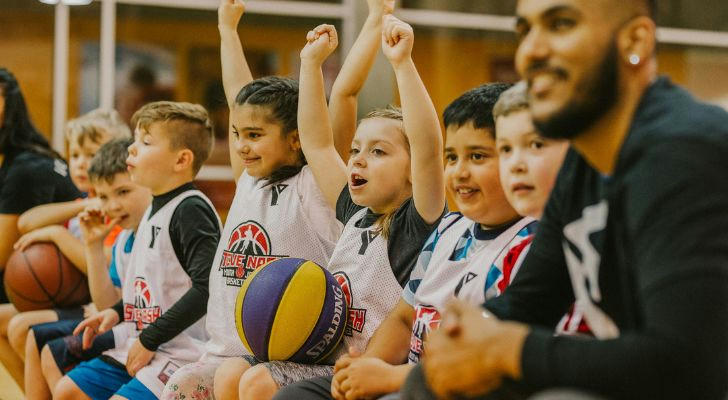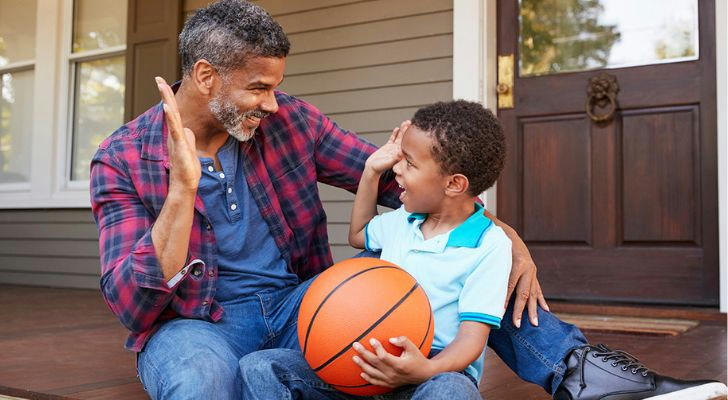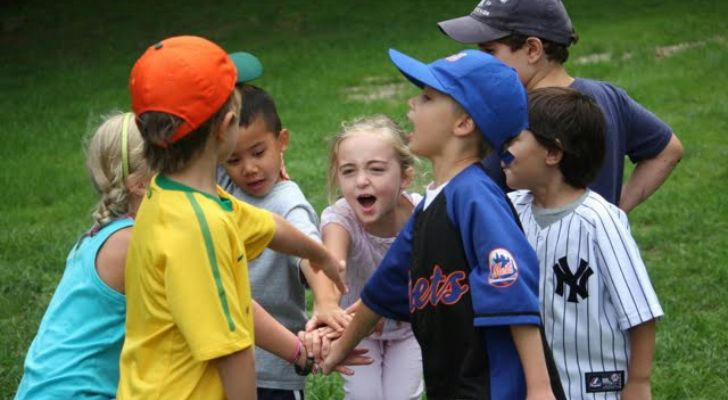Common Mistakes Parents Make in Children's Basketball Education and How to Correct Them
Early childhood basketball education can not only help children strengthen their bodies, but also cultivate their spirit of cooperation and self-confidence. However, many parents often make mistakes in the guidance process, such as paying too much attention to game results, neglecting basic training, putting pressure on children, ignoring teamwork, or over-intervention. It is important to correct these mistakes because it allows children to lay a solid foundation of skills and establish positive and healthy exercise habits while enjoying the fun of sports.
Myth 1: Paying too much attention to competition results

Common mistake: Parents place too much emphasis on game outcomes and wins and losses.
Impact: Children may feel great pressure and worry about not being able to win the game, which affects their interest and self-confidence in basketball. It greatly reduces the fun of children in enjoying the game and the learning process.
Correction method:
• Emphasis on skill learning and fun, rather than pure results.
• Encourage effort and progress in the process and avoid over-evaluating performance.
Myth 2: Neglecting the training of basic skills

Common mistake: Parents neglect systematic training of basic skills and focus too much on advanced techniques.
Impact: Basic skills such as dribbling, passing, and shooting are the core of basketball. If these basic trainings are neglected, it will be difficult for children to perform well in the game, and they may even get injured due to lack of proficiency in basic movements. Without a solid foundation, they will encounter difficulties in learning more complex skills and their progress will be limited.
Correction method:
• Develop a comprehensive training program that includes basic skills such as dribbling, passing, and shooting.
• Regularly assess and reinforce foundational skills to ensure overall improvement.
Myth 3: Putting too much pressure on children

Common mistake: Parents place too much expectations and pressure on their children.
Impact: Excessive expectations can bring great psychological pressure to children, affect their self-confidence and mental health , and may make them feel anxious and frustrated . In addition, children’s interest and enthusiasm may diminish due to excessive pressure.
Correction method:
• Set reasonable expectations and pay attention to your child’s interests and pace of development.
• Provide positive feedback and encouragement to create a relaxed and enjoyable learning environment.
Myth 4: Ignoring the importance of teamwork

Common mistake: Parents focus too much on their children’s individual performance and neglect teamwork training.
Impact: Ignoring teamwork means that children may miss the opportunity to understand teamwork and communication, which is detrimental to their future games and life.
Correction method:
• Encourage children to participate in team activities and competitions to cultivate a spirit of cooperation.
• Incorporate teamwork exercises into training to enhance collective awareness.
Myth 5: Excessive intervention and control

Common mistake: Parents intervene too much in training, affecting children's autonomy.
Impact: Excessive intervention may limit children's opportunities to make decisions and solve problems independently, causing them to lose initiative and self-confidence. Too much control will limit children's creative thinking and problem-solving abilities, affecting their ability to respond in competitions.
Correction method:
• Give children appropriate autonomy to allow them to explore and grow in training. Cultivate their autonomy and problem-solving skills while maintaining their interest and passion for basketball.
• Provide appropriate guidance and avoid excessive intervention and control.
Case Study:
Tom's parents used to pay a lot of attention to his basketball games, focusing only on his scores and encouraging him to win, while ignoring the importance of teamwork. As a result, Tom began to lose interest in basketball, and his performance did not improve. Eventually, they decided to change their approach and encourage Tom to work with his teammates and enjoy the game instead of just pursuing winning. After making this switch, Tom's passion for basketball rekindled. He began to enjoy the game more, improved his teamwork skills, and his performance on the court began to get better.
Some common mistakes parents make in their children's basketball education are often only concerned about the results of the game, ignoring basic skills training, putting too much pressure on children, ignoring teamwork, and over-intervention. These problems may cause children to lose interest in basketball, lack basic skills, feel anxious, lack a spirit of cooperation, and may also reduce the opportunity for independent learning. It is important to correct these misunderstandings, which can help children enjoy basketball, improve their skills, maintain a positive attitude, learn teamwork, and cultivate the ability to solve problems independently. In this way, children can find fun in basketball and grow up healthily.
